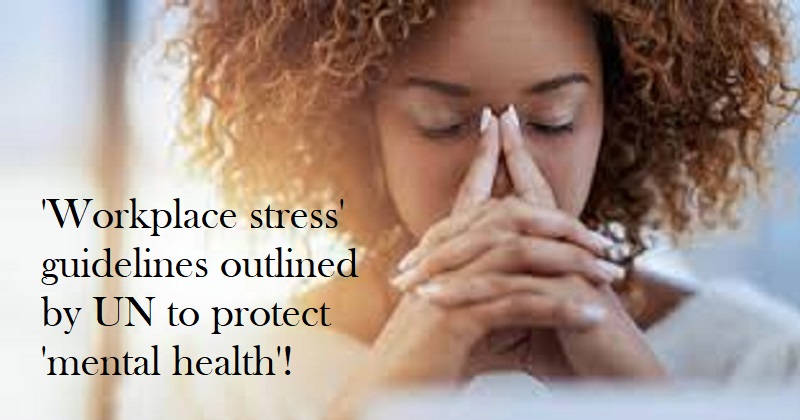
The United Nations has expressed concern about the psychological pressures related to the workplace and stated that there is still more to be done to protect mental health at work. The UN agencies for health and labour produced two publications with recommendations on how to avoid and safeguard against mental health hazards at work and a warning that psychological discomfort is expensive for both people and society.
According to the World Health Organization and the International Labour Organization, depression and anxiety account for an estimated 12 billion missed workdays annually, costing the worldwide economy close to $1 trillion. ‘ It’s time to pay attention to how bad job may be for our mental health. Although the individual’s well-being is sufficient justification for action, poor mental health may also have a crippling effect on a person’s performance and productivity ‘,WHO chief Tedros Adhanom Ghebreyesus said in a joint statement.
WHO had issued a warning in June that almost a billion people worldwide were already coping with a mental illness when COVID-19 struck, and the epidemic just made it worse. One in six of them are working-age people, who make up a significant portion of the population, according to the WHO. The two agencies cautioned that the job itself is frequently a catalyst for mental health issues. ‘The statistics are concerning. A big duty awaits us,’ Reporters were briefed by Manal Azzi, the ILO team leader for workplace safety and health.
Additionally, a study with recommendations for addressing the issue was made public. One of them claims that supplying the employee with meaningful employment helps safeguard their mental health by offering them a sense of achievement, self-assurance, and income. A person’s mental health can dramatically deteriorate or be made worse by adverse or inadequate working conditions, poor working relationships, and unemployment. It noted that discrimination on the basis of gender, age, ethnicity, sexual orientation, and disability might have a harmful impact on mental health.
The recommendations also stressed the value of stress-reduction techniques like mindfulness and exercise. However, they assert that ‘organisational interventions’ are the most important area for intervention since they may reduce threats to employees’ mental health at work. This includes, for the first time, advising managers to undergo training on how to avoid creating stressful work situations and deal with distressed employees.
Reporters should ‘protect individuals from suffering hazards like as excessively severe workloads… being harassed, problematic relationships with colleagues or superiors,’ according to Aiysha Malik of the WHO’s section of mental health and substance use. She argued that unless something changes, we will continue to experience problems with our mental health at work no matter how many stress-management techniques we employ.

Post Your Comments